Bangyong Sun
A General-Purpose Dehazing Algorithm based on Local Contrast Enhancement Approaches
May 31, 2020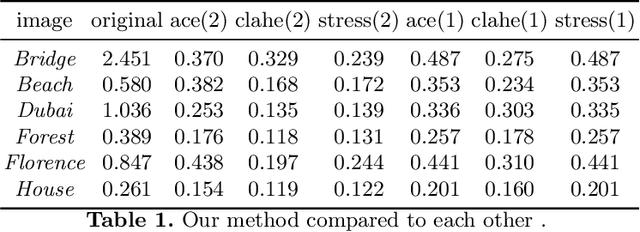
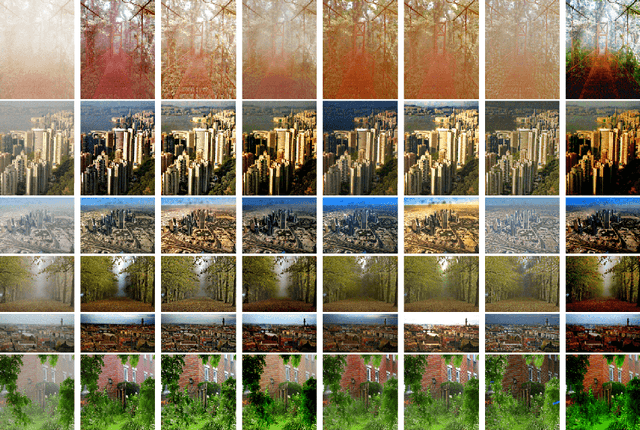
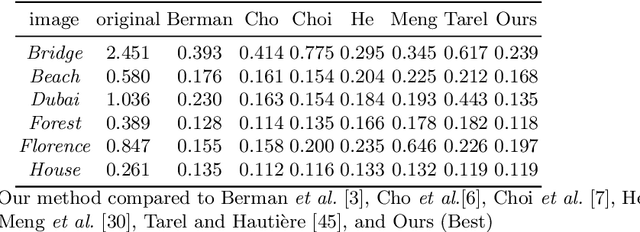
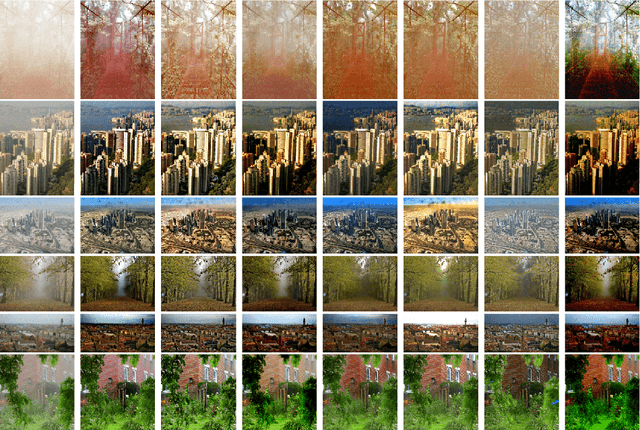
Abstract:Dehazing is in the image processing and computer vision communities, the task of enhancing the image taken in foggy conditions. To better understand this type of algorithm, we present in this document a dehazing method which is suitable for several local contrast adjustment algorithms. We base it on two filters. The first filter is built with a step of normalization with some other statistical tricks while the last represents the local contrast improvement algorithm. Thus, it can work on both CPU and GPU for real-time applications. We hope that our approach will open the door to new ideas in the community. Other advantages of our method are first that it does not need to be trained, then it does not need additional optimization processing. Furthermore, it can be used as a pre-treatment or post-processing step in many vision tasks. In addition, it does not need to convert the problem into a physical interpretation, and finally that it is very fast. This family of defogging algorithms is fairly simple, but it shows promising results compared to state-of-the-art algorithms based not only on a visual assessment but also on objective criteria.
NTIRE 2020 Challenge on NonHomogeneous Dehazing
May 07, 2020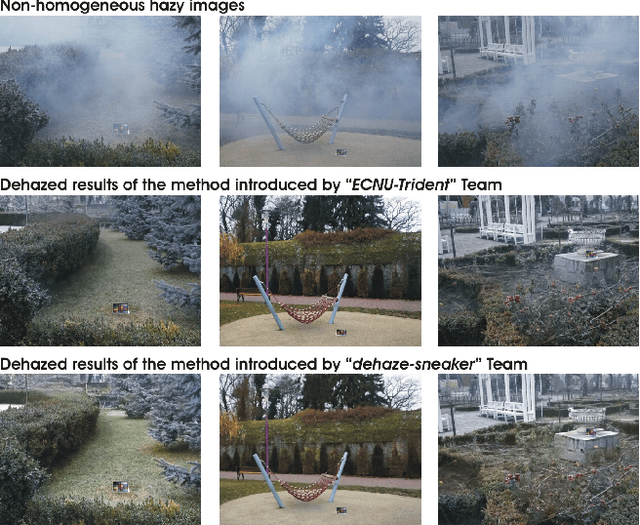
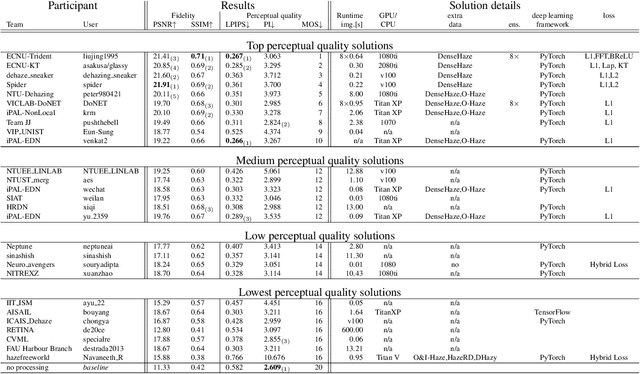
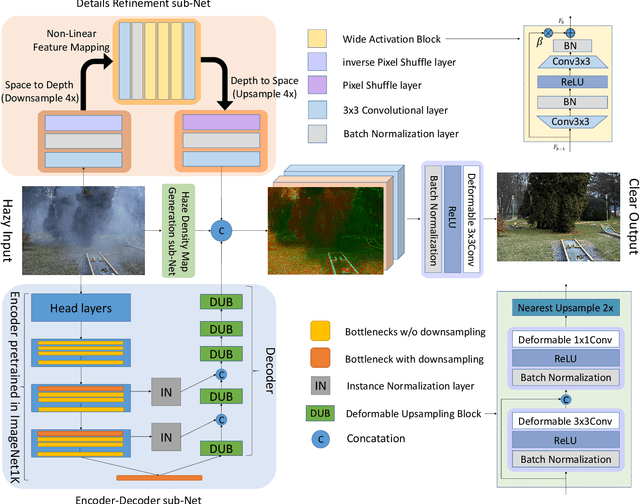
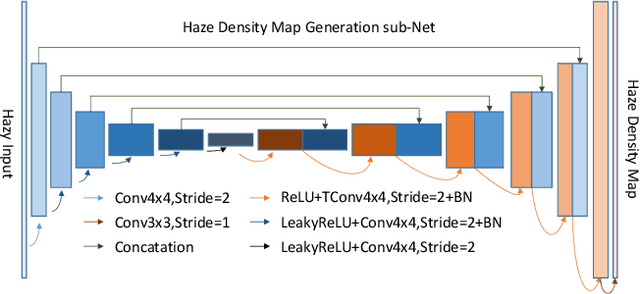
Abstract:This paper reviews the NTIRE 2020 Challenge on NonHomogeneous Dehazing of images (restoration of rich details in hazy image). We focus on the proposed solutions and their results evaluated on NH-Haze, a novel dataset consisting of 55 pairs of real haze free and nonhomogeneous hazy images recorded outdoor. NH-Haze is the first realistic nonhomogeneous haze dataset that provides ground truth images. The nonhomogeneous haze has been produced using a professional haze generator that imitates the real conditions of haze scenes. 168 participants registered in the challenge and 27 teams competed in the final testing phase. The proposed solutions gauge the state-of-the-art in image dehazing.
 Add to Chrome
Add to Chrome Add to Firefox
Add to Firefox Add to Edge
Add to Edge